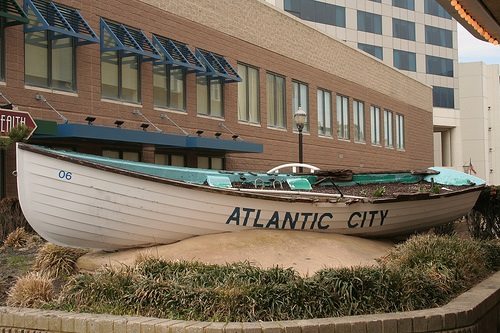
December 15, 2013; Press of Atlantic City
On the eve of its fiftieth anniversary and the fiftieth anniversary of the War on Poverty, Atlantic Human Resources (AHR), an anti-poverty program based in Atlantic City, appears to have imploded. As with many such multi-service centers, AHR ran dozens of programs over the years out of as many as 20 locations, generally financed with state and federal funding.
Sign up for our free newsletters
Subscribe to NPQ's newsletters to have our top stories delivered directly to your inbox.
By signing up, you agree to our privacy policy and terms of use, and to receive messages from NPQ and our partners.
This article reveals that in the past year, AHR was stripped of more than three-quarters of its programs and 90 percent of its staff after being investigated by two federal agencies in response to internal whistleblowers, one of whom held the CFO position. One of these investigations, conducted by the Administration for Children and Families in the U.S. Department of Health and Human Services, revealed in April that its AHR’s Head Start funding would not be awarded for the upcoming school year after the Administration for Children and Families in the U.S. Department of Health and Human Services found that AHR had misspent the funds and did not take precautions against comingling the money with that of other programs.
Then, the Corporation for National and Community Service did its own investigation that resulted in the revocation of the Foster Grandparent Program, which may not have been doing required background checks, and a senior volunteer program. State funding also took a dive, from the $816,030 in 2011 and about $817,166 in 2012 to $582,130 for 2013. Banks with which AHR did business also froze some of its accounts after the group found itself sued in civil court for not paying its bills.
Subsequently, the state’s Department of Community Affairs conducted another audit at the request of AHR and found additional problems. Now it appears to be negotiating the return of what remains of its CDBG money to the state. Remaining at AHR are three programs and twenty employees, but a quick search of AHR’s website shows no public statement of its status or position in all of this.
In many cities, such agencies are mainstays, operating as they do a set of standard safety net programs that range from childcare to senior programs, fuel assistance, housing advocacy, and much more. NPQ is interested in hearing about other instances of community action agencies/anti-poverty agencies experiencing such problems, and we would like to hear from others in the Atlantic City area about plans to fill in the gaps.—Ruth McCambridge













